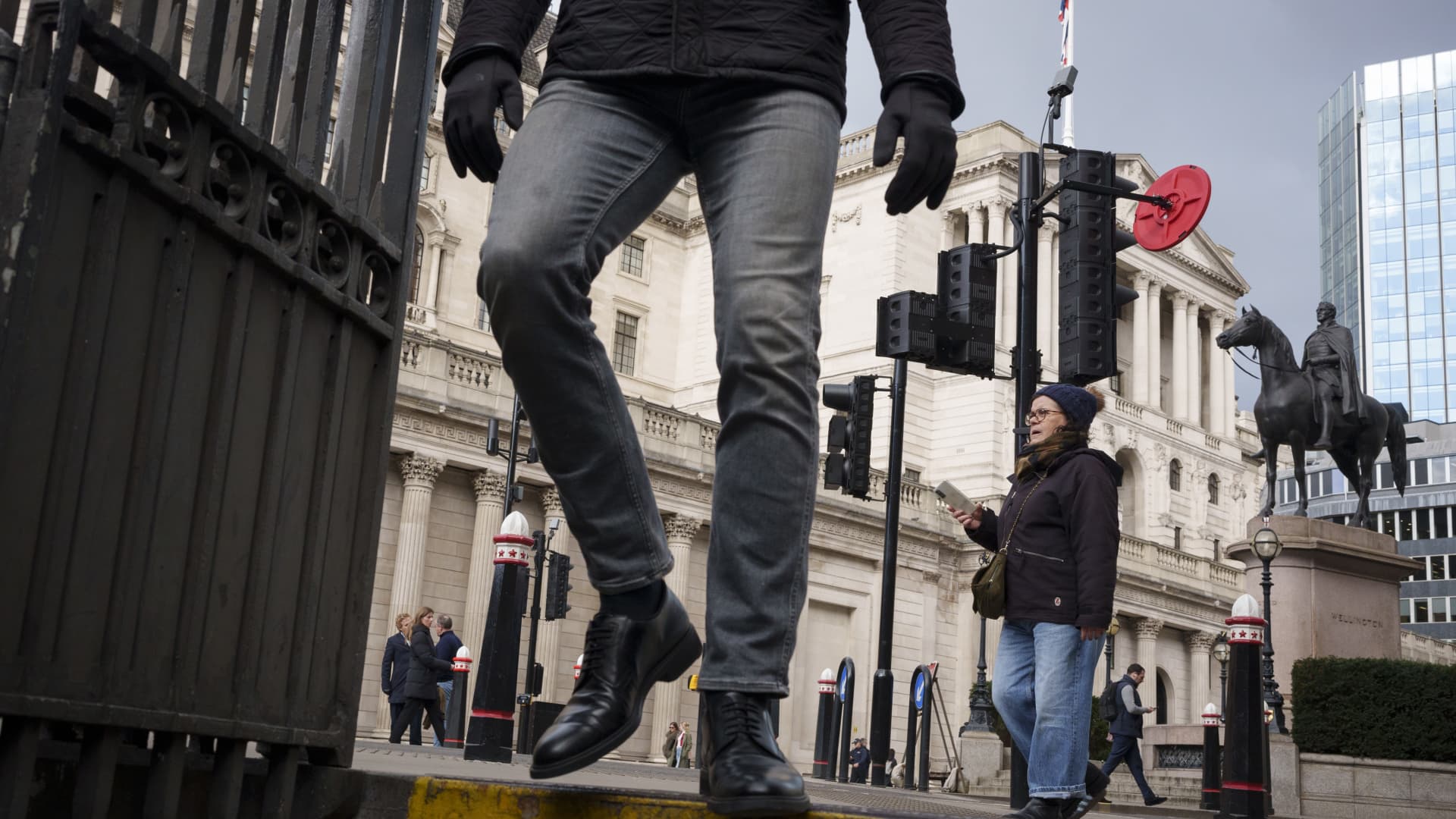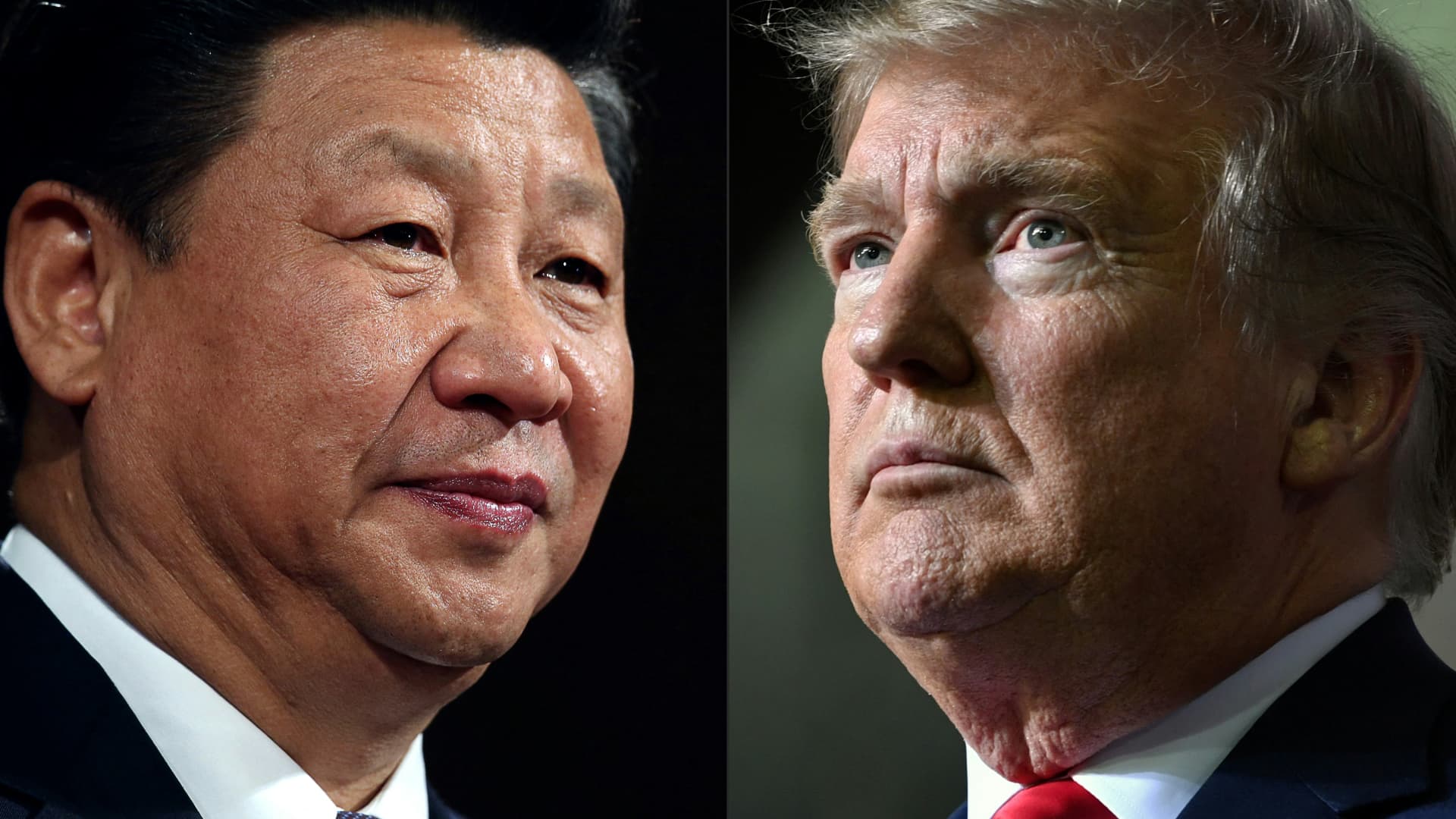The Reserve Bank of India logo outside its headquarters in Mumbai on Feb. 7, 2025.
Indranil Mukherjee | Afp | Getty Images
On Friday, the Reserve Bank of India trimmed its repo rate by 25 basis points. A day prior, the Bank of England lowered interest rates by 25 basis points, following the European Central Bank’s cut of the same amount on Jan. 30.
Many economies seem to be settling into a lower-rate environment as policymakers look to boost economic growth. That’s in stark contrast with the U.S. — it’s unclear if the U.S. Federal Reserve would even deliver on its two rate cuts in 2025, forecast in December, given the uncertainties over the economic impact of U.S. President Donald Trump’s policies. Moreover, Trump seems to have backed off from applying pressure on the Fed.
Ahead of Trump’s inauguration, the U.S. dollar began strengthening and hit its highest level in more than two years, as measured by the U.S. dollar index. That’s already affected companies such as Amazon, which blamed the currency for weighing down its expected revenue in the current quarter.
The U.S. might have an edge over other economies and stock markets for now, but an edge can cut both ways.
What you need to know today
India’s first rate cut in nearly five years
The Reserve Bank of India cut its repo rate by 25 basis points to 6.25%, Governor Sanjay Malhotra said in a livestreamed address Friday. The move, which was expected by economists, was the first time in nearly five years the central bank has lowered rates. The RBI forecast real economic growth to come in at 6.4% for the current fiscal year, the country’s lowest in four years, and 6.7% for fiscal year 2025-26.
Bank of England trims rates
The Bank of England lowered its benchmark interest rate by 25 basis points to 4.5%, its first cut of the year. All members of the monetary policy committee voted to lower rates, but two out of nine had voted for a larger cut of 50 basis points. Central bank governor Andrew Bailey said he expects more cuts this year. The BOE also halved its growth forecast for the U.K.’s economy in 2025 to 0.75% from 1.5%.
Disappointing guidance from Amazon
Amazon shares fell more than 4% after giving disappointing revenue guidance for the current quarter, citing difficulties posed by a strong U.S. dollar. It also announced plans to spend $100 billion in capital expenditures in 2025, mostly on artificial intelligence infrastructure. The tech giant beat earnings and revenue expectations for the fourth quarter — and is poised to surpass Walmart as the S&P 500 company with the highest quarterly revenue.
Consecutive gains for S&P 500
On Thursday, the S&P 500 advanced 0.36% for its third consecutive winning day, while the Nasdaq Composite climbed 0.51%. The Dow Jones Industrial Average, however, lost 0.28%. Japan’s Nikkei 225 retreated around 0.6% after the country’s household spending in December unexpectedly jumped on an annual basis, while India’s Nifty 50 was around the flatline after the RBI trimmed interest rates.
Trump’s focusing on yields, not rates
The Trump administration is focusing on using fiscal policy to keep the 10-year Treasury yield low and isn’t “calling for the Fed to lower rates,” Treasury Secretary Scott Bessent said in a Wednesday interview with Fox News. That marks a shift from Trump’s original plan to “demand that interest rates drop immediately.”
[PRO] IBM outperforms Nvidia
Not Nvidia, not Apple and not Amazon — the best-performing stock in the Dow over the past three months has been IBM, which climbed 27%. However, the tech company needs to do more in the field of artificial intelligence for its stock to continue performing well, according to one chief investment officer.
And finally…
People shop for clothes at a Calvin Klein store at a mall in Beijing on Feb. 5, 2025.
Adek Berry | AFP | Getty Images
How Calvin Klein and Tommy Hilfiger got caught in Trump’s trade war with China
China has blacklisted the owner of Calvin Klein and Tommy Hilfiger, which could force the company to shut down stores and manufacturing in the country, in an early repercussion of Trump’s trade war. While China’s Ministry of Commerce began investigating PVH September for allegedly refusing to source cotton from the Xinjiang region, which has become notorious for its Uyghur detention camps, Beijing officially placed the company on its list of “unreliable entities” on Tuesday.











